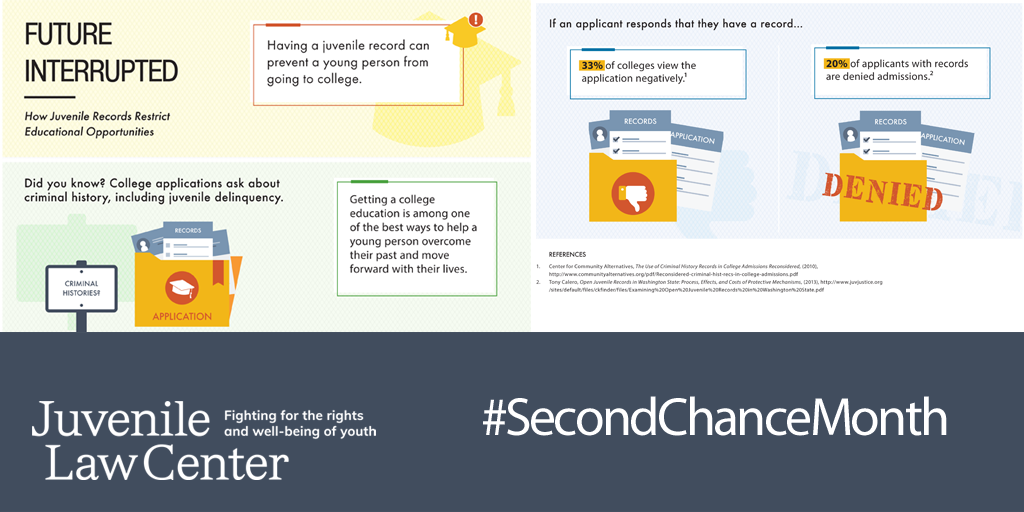Future Interrupted: How Juvenile Records Restrict Educational Opportunities

Students applying to college are routinely questioned about their involvement with the justice system. Depending on how students answer, they could be discouraged or denied admission to college or other post-secondary opportunities. Studies have shown that obtaining a college degree is a reliable predictor of future success and advancement. However, young people with juvenile records are frequently denied this opportunity.

This infographic illustrates how a juvenile record can forestall a young person’s ambitions of pursuing higher educational opportunities. Yet there is no evidence that having a juvenile record is indicative of a young person’s ability to successfully complete college or other post-secondary courses. More importantly, post-secondary opportunities can actually propel these youth toward successful futures.
Join Juvenile Law Center this Second Chance Month by sharing this infographic to shed light on the educational barriers imposed by juvenile records.